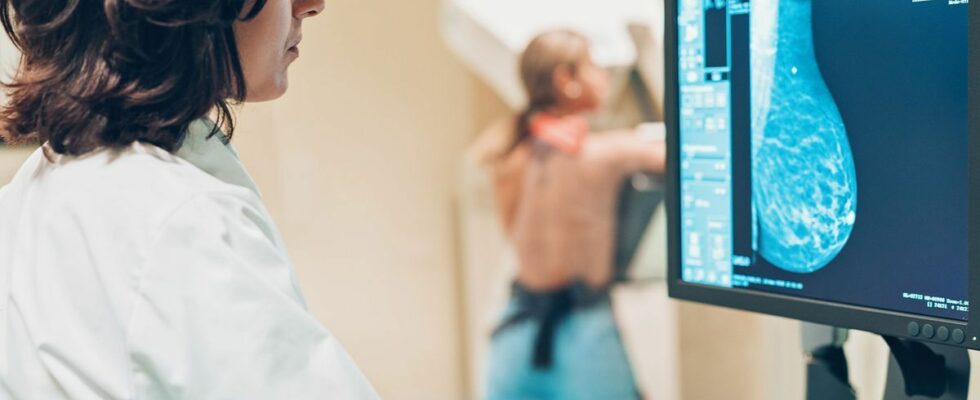Published on
Updated
Reading 3 min.
The earlier a cancer is detected, the better the chances of cure and the less burdensome the treatments. This is the whole point of screening when it is possible, although the programs put in place are still struggling to establish themselves. But artificial intelligence could change the situation, according to a study carried out by researchers based in the United Kingdom, by managing – through training – to detect the disease early.
With some 20 million cases and 9.7 million deaths in 2022, cancer is one of the leading causes of mortality worldwide. A scourge which is expected to worsen in the coming years and decades, given the projections made by the World Health Organization (WHO): more than 35 million new cases could be recorded in 2050, an increase of 77% compared to estimates made for the year 2022. If prevention remains the key to limiting risk factors, particularly in terms of smoking, alcohol consumption, sedentary lifestyle, diet, and pollution, scientists are also doing everything possible to advance research in terms of treatment and early diagnosis. And artificial intelligence (AI) could help improve this last point.
AI can help with better diagnosis
In any case, this is what an article published by Oxford University Press in the journal reveals Biology Methods & Protocols, highlighting recent work by researchers at the University of Cambridge and Imperial College London, UK. These trained artificial intelligence to examine DNA methylation patterns and identify thirteen types of cancer, including breast, liver, lung and prostate, from non-cancerous tissue . All with an accuracy of 98.2%. Being able to identify unusual DNA methylation patterns, which “come back [dans l’état actuel des choses] looking for a needle in a haystack“, as the researchers themselves specify, would make it possible to detect said cancers at an early stage, and therefore increase the chances of cure.
“Computational methods such as this model, through better training on more varied data and rigorous testing in the clinic, will eventually provide AI models that can help doctors in the early detection and screening of cancers. This will lead to better outcomes for patients“, underlines Shamith Samarajiwa, one of the main authors of this work, in a press release. The scientists specify, however, that at this stage the model is based on tissue samples, and that it is necessary to deepen this work – and the training of the AI - on a more diversified collection of biopsy samples. for clinical use.
AI to the rescue of doctors?
This is not the first time that researchers have seen hope in artificial intelligence in the treatment of cancers and the improvement of patient survival. In 2021, researchers from the Institut Curie developed deep learning artificial intelligence capable of “sequence all the genes expressed in a tumor”. Tested on 48 tumors, the algorithm made it possible to detect 79%, the objective being in this specific case to diagnose cancers of unknown origin, namely cancers discovered by the presence of metastases and therefore at an advanced stage. .
The same year, the European PANCAIM project has made it possible to develop an artificial intelligence algorithm capable of detecting pancreatic cancers earlier which could previously have escaped imaging techniques. More recently, in August 2023, Swedish researchers revealed the results of a study, published in The Lancet Oncologyshowing that artificial intelligence was capable of helping radiologists detect breast cancer.
All of these advances demonstrate the interest of researchers in artificial intelligence to fight cancer, by improving early diagnosis and treatments, and by extension patient survival. However, there is no question of AI replacing healthcare professionals, but of supporting them to enable patients to benefit from the most appropriate treatment as quickly as possible.
